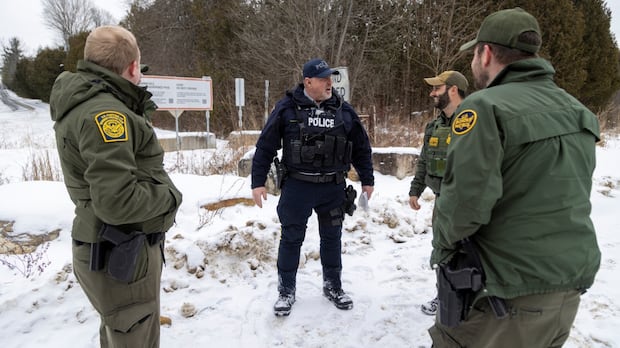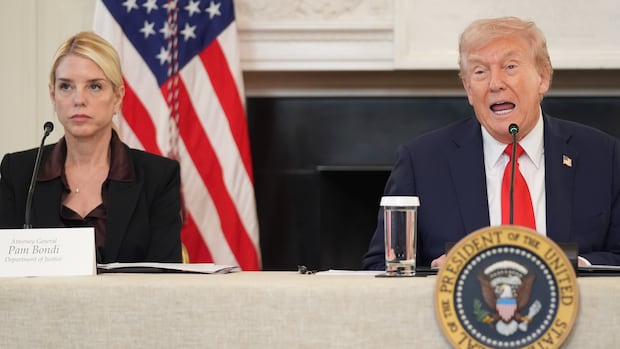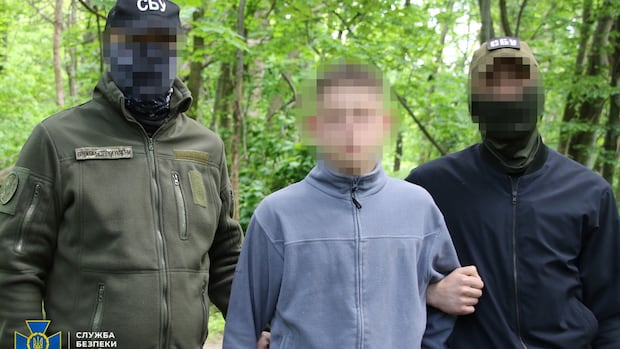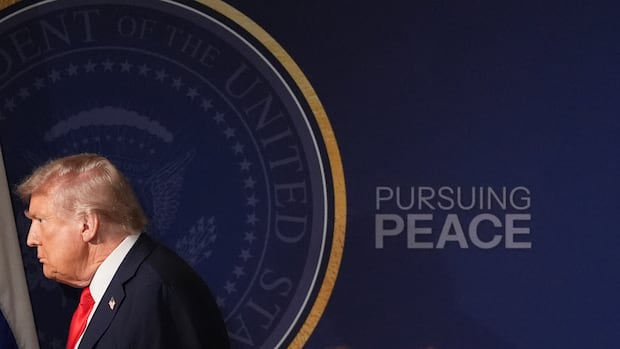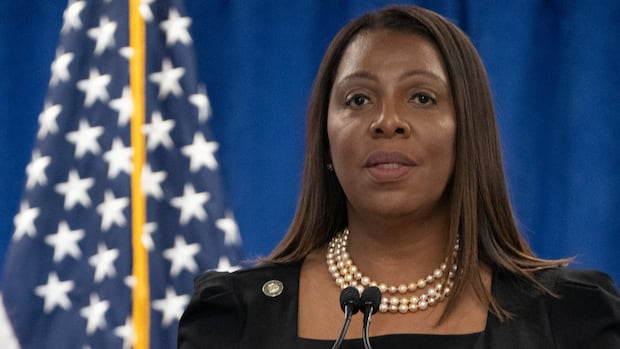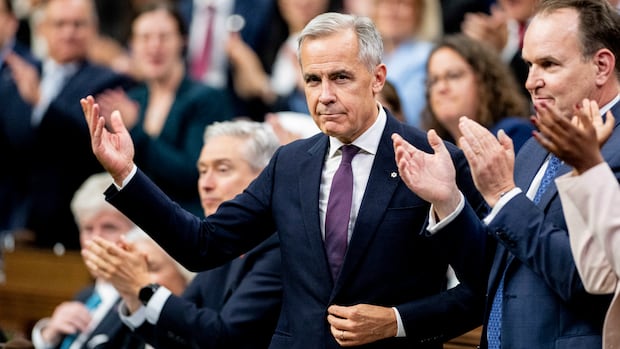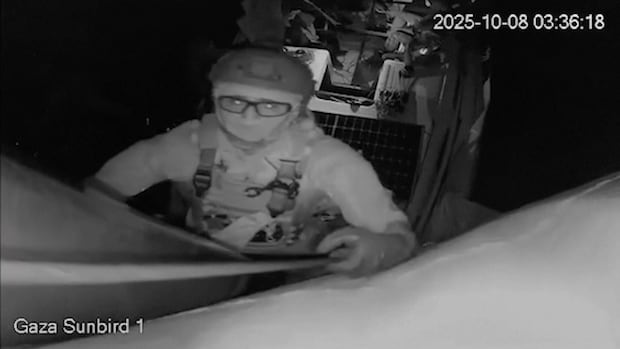The U.S. Congress is being asked to adopt legislation that could lead to Canada and the United States further integrating their enforcement of the border — including allowing U.S. officers to more freely operate on Canadian soil.
House Resolution 5518, introduced by New York Republican Rep. Nicholas Langworthy, calls on U.S. Homeland Security Secretary Kristi Noem to “negotiate or amend existing agreements with the Government of Canada, as appropriate, for integrated cross-border aerial, maritime and land law enforcement operations.”
The bill also calls for U.S. officers to operate in Canada, and for Canadian officers to operate in the U.S., "for the purpose of enhancing border security or law enforcement co-operation or operations, including for the purposes of conducting operations in the land, air and maritime domain.”
The text does not make it clear whether this could allow U.S. officers to operate in Canada unaccompanied by a Canadian official. Langworthy’s office has not yet granted an interview with the congressman nor answered questions sent by CBC News last week.
While some U.S. officers currently work at Canadian airports, Langworthy's bill could see their ability to operate in Canada increase significantly.
Langworthy’s bill is co-sponsored by 13 Republican members of the House of Representatives including upstate New York Rep. Elise Stefanik, part of congressional leadership and considered a close ally of U.S. President Donald Trump.
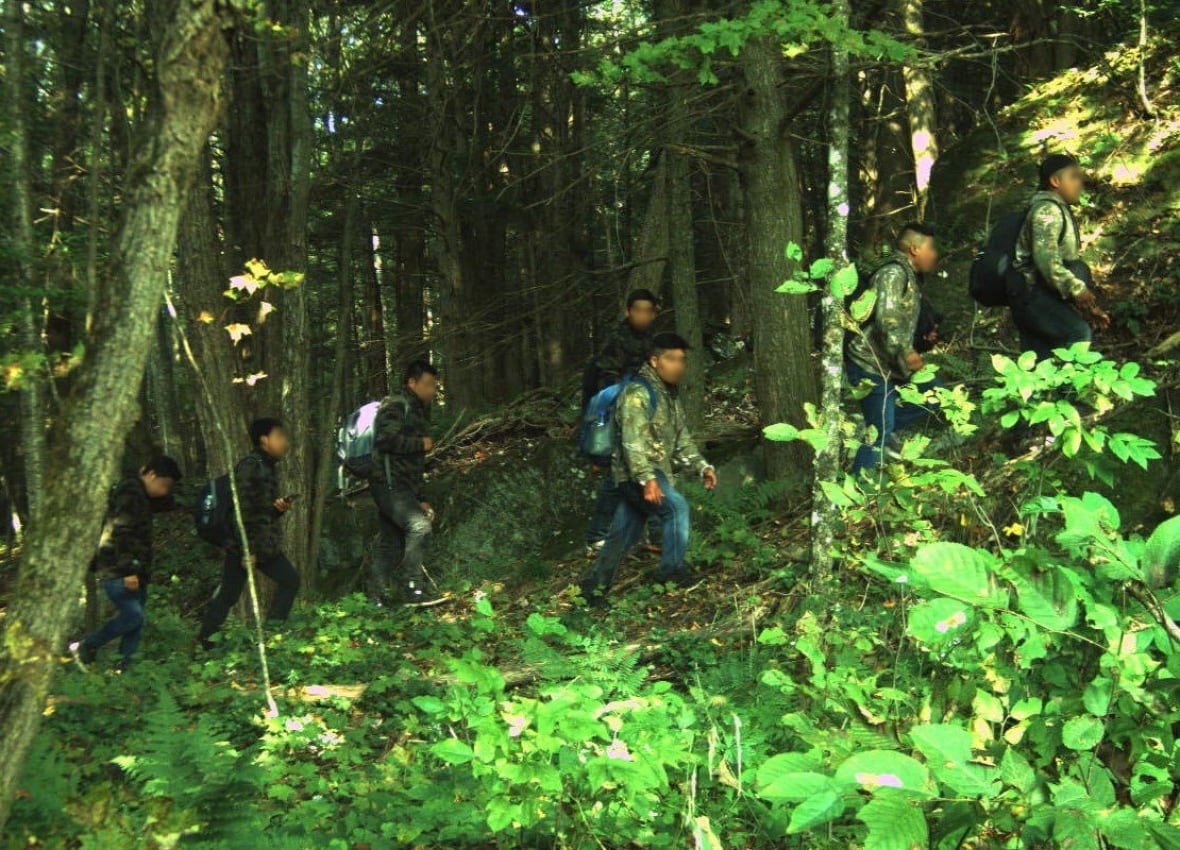 U.S. Border Patrol cameras capture people crossing into the United States from Canada through the Swanton Sector. (U.S. Border Patrol)
U.S. Border Patrol cameras capture people crossing into the United States from Canada through the Swanton Sector. (U.S. Border Patrol)In a news release accompanying its introduction on Sept. 19, Stefanik praised Langworthy’s bill, saying she is working alongside Trump “to secure the northern border and rid our communities of criminal, illegal aliens.”
Langworthy introduced Bill 5518 the same day as another, H.R. 5517, which would increase requirements for Homeland Security to update congressional committees on its threat analysis of the border with Canada.
Both bills have been referred to committees.
In June, Langworthy introduced a bill to tighten up the rules surrounding parole for refugee claimants.
“My constituents are fed up with the flood of murderers, terrorists and dangerous individuals that poured into our communities across New York State — all because of the reckless, failed open-border policies of the Biden administration,” he wrote in a statement at the time.
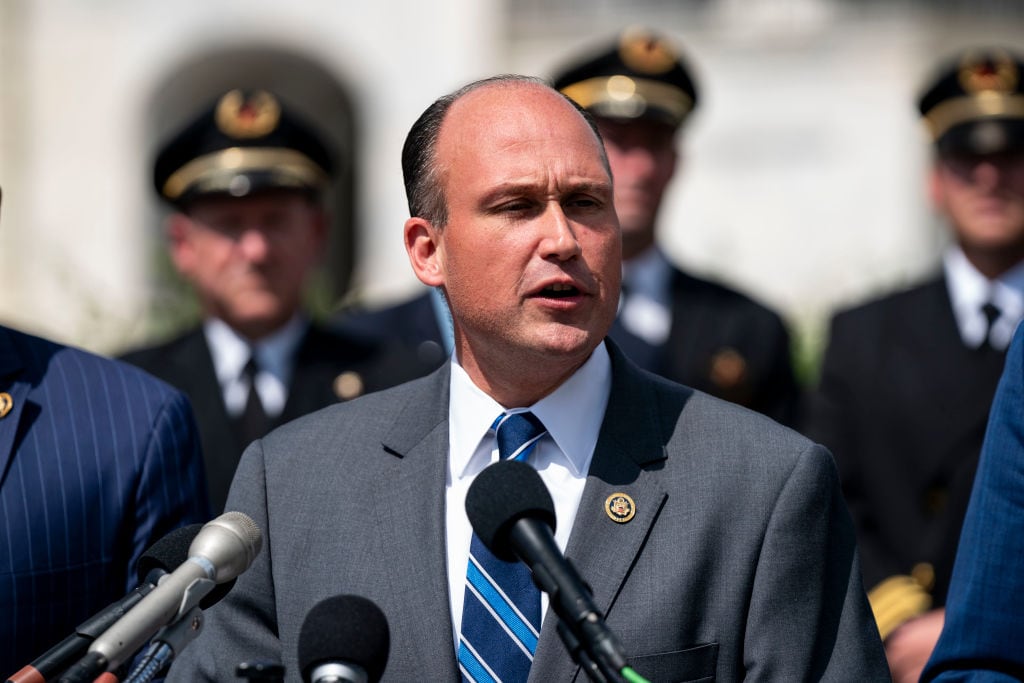 Republican Rep. Nicholas Langworthy wants to see more American law enforcement operate on Canadian soil, and has introduced a bill pursue that goal. (Bonnie Cash/Getty Images)
Republican Rep. Nicholas Langworthy wants to see more American law enforcement operate on Canadian soil, and has introduced a bill pursue that goal. (Bonnie Cash/Getty Images)Public Safety Minister Gary Anandasangaree’s office declined to comment on Langworthy’s bill calling for greater integration.
“These are legislative proposals which have yet to become law,” responded David Taylor, Anandasangaree’s director of communications. “We’ll wait for Congress to consider them before commenting.”
The Department of Homeland Security has not yet responded to questions from CBC News about whether Noem supports Langworthy’s bill.
It was introduced two days after FBI Director Kash Patel told a House committee that there has been “a sharp increase of known or suspected terrorists” coming into the U.S. from Canada. He pledged to “get creative and put more resources into that.”
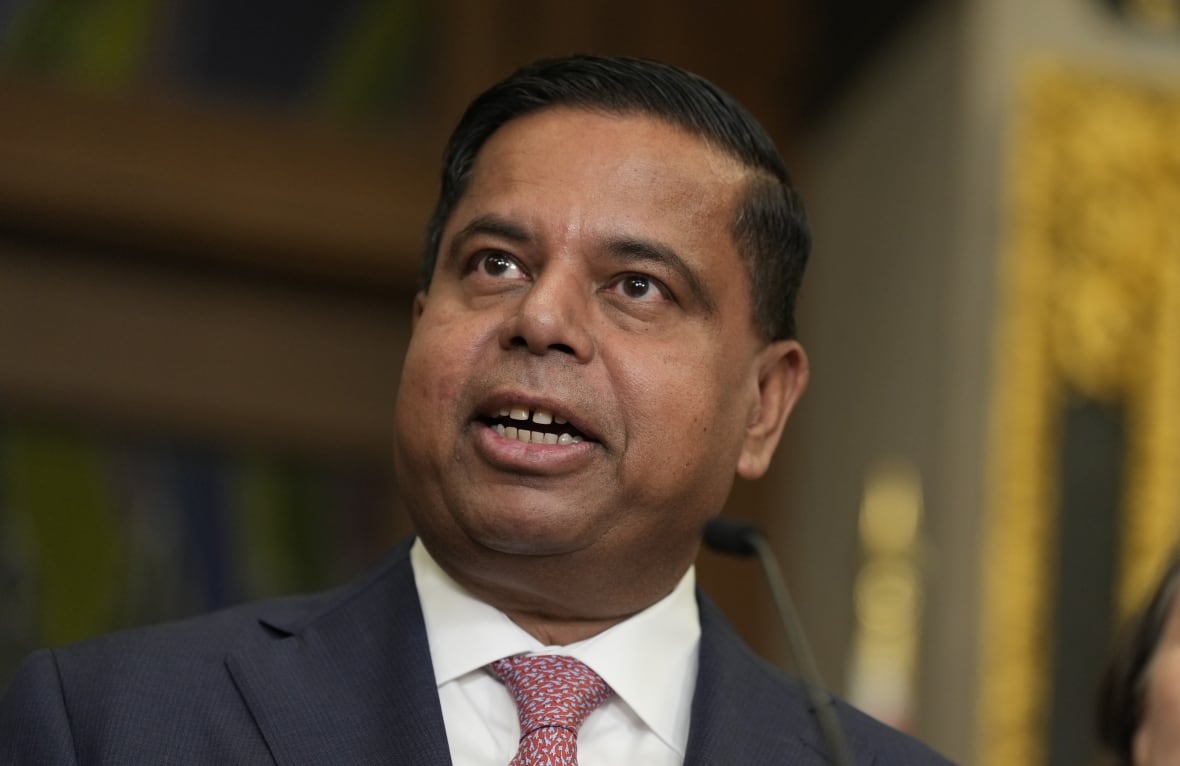 Public Safety Minister Gary Anandasangaree's office declined to comment on the U.S. bill (Adrian Wyld/The Canadian Press)
Public Safety Minister Gary Anandasangaree's office declined to comment on the U.S. bill (Adrian Wyld/The Canadian Press)However, on Tuesday, during his meeting with Prime Minister Mark Carney, Trump praised the progress that has been made on policing the border.
Langworthy’s bill comes as co-operation between Canadian and U.S. border officials has steadily increased over the years. Some U.S. officers are already stationed in Canada, conducting pre-clearance at eight Canadian airports and pre-inspection locations at Victoria Harbour, Pacific Central Station and the Canada Place Cruise Ship Terminal.
U.S. pre-clearance allows Canadian travellers to clear U.S. customs while still in Canada, saving them time when they land in the U.S.
While numbers fluctuate, Public Safety Canada estimates that 350 to 400 officers are currently stationed in Canada.
“They live here with their families, attend our schools and are parts of our local community,” Shannon Grainger, senior assistant deputy minister of public safety recently told the House of Commons public safety committee.
“This is just one example of the kind of integration that we have with our American counterparts.”
Canada Border Services Agency (CBSA) officers are not conducting pre-clearance in the U.S.
A pilot project announced in January at the Covey Hill/Cannon Corners border crossing between Quebec and New York would include Canadian officers posted on the U.S. side of the border, screening travellers and goods headed to Canada. A launch date has not yet been set.
In a news release about Langworthy's bills, he and Stefanik touted the success of the Shiprider program in which U.S. Coast Guard and RCMP officers operate on the same boat to patrol waterways between the two countries.
And at a recent public safety committee hearing, top officials from the CBSA, Public Safety and the RCMP touted their close working arrangement with U.S. officials, including plans to launch “a North American Joint Strike Force to target organized crime and the trafficking of precursor chemicals and illegal substances.”
Sean McGillis, executive director of federal policing for the RCMP, told the committee the joint force involves law enforcement, border security and intelligence along with “new resources and front-line personnel, as well as technical operations capacity and infrastructure.”
WATCH | Liberal government looking for fast movement on border bill:Public Safety Minister Gary Anandasangaree said Wednesday the Liberal government has introduced a second border security bill that contains several measures from Bill C-2 tabled in June. The government will still pursue passage of the first bill, which contains controversial new powers to search mail and access personal information.Denis Vinette, a former CBSA vice-president, said Langworthy’s bill is in keeping with the steady move toward more integration at the border since 9/11.
“We have seen these before, and they have tended to materialize into new announcements and new co-operation and renewed engagement, if you will, between Canada and U.S. border law enforcement entities.”
Vinette said while law enforcement officers on both sides of the border currently co-operate with each other, each operates in their own country under their own laws.
He said Langworthy may see an "opportunity" for law enforcement in one country to "have the same protections, immunity" that the local agency would.
Vinette said a lot of details would have to be worked out, including what law enforcement tools, such as firearms, U.S. officers would be allowed to carry in Canada.
 Mount Royal University professor Kelly Sundberg welcomes the U.S. bill calling for more integration. (CBC)
Mount Royal University professor Kelly Sundberg welcomes the U.S. bill calling for more integration. (CBC)Kelly Sundberg, a former CBSA officer who now teaches at Mount Royal University, welcomed Langworthy’s bill, describing it as “a positive move forward” — particularly for addressing smuggled drugs, weapons and people.
“Ultimately that’s going to save lives,” he said.
Sundberg said it is unlikely that Canada would agree to U.S. officers operating without Canadian colleagues.
“I’m not worried about that. I don’t think that either country wants to engage in an international incident or to question sovereignty,” he said.
Sundberg also welcomed the provision in the bill for the U.S. to pay for torts or damages "because of the wrongdoing or negligence of one of their officers" on Canadian soil.
“That’s a good thing because that says they understand that they have responsibility if they work up here and that some of that responsibility may be paying out a claim," he said.
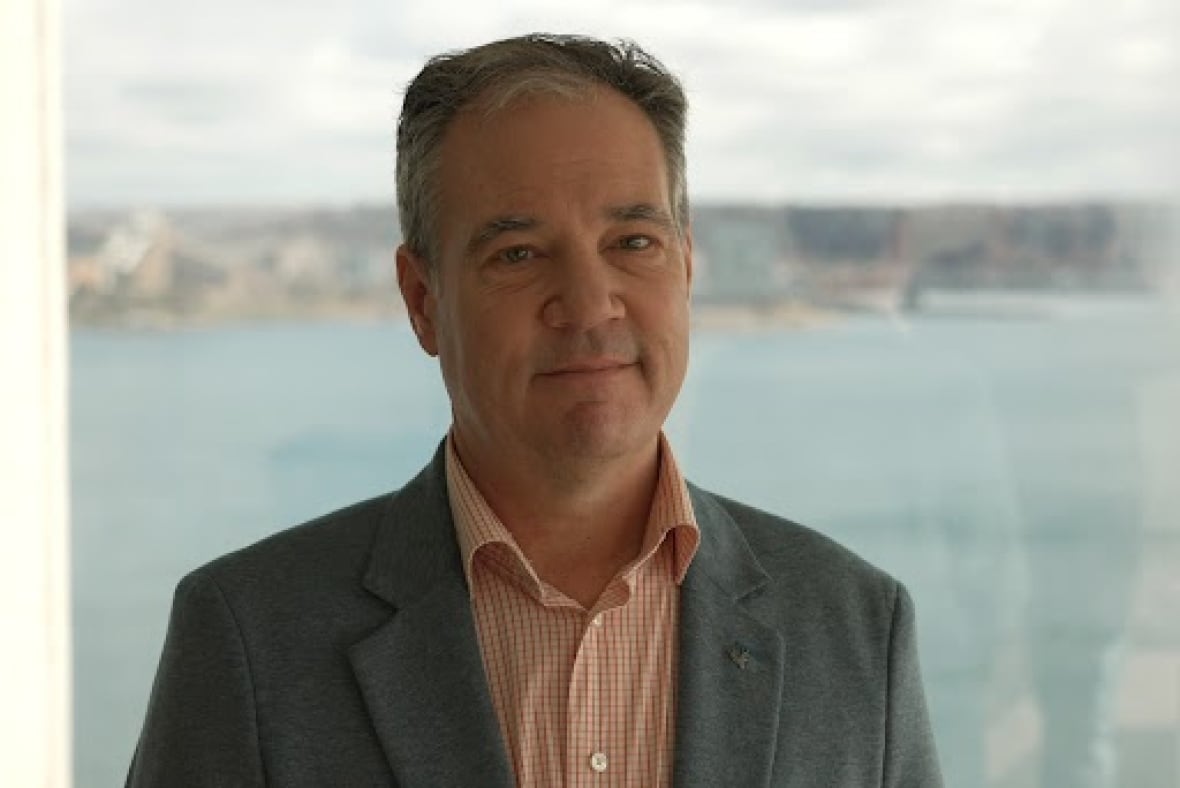 David Fraser, a privacy and cross-border law expert with McInnes Cooper in Halifax, says a number of questions would have to be negotiated if Canada agreed to allow U.S. officers to operate on Canadian soil. (Tyson Koschik/CBC)
David Fraser, a privacy and cross-border law expert with McInnes Cooper in Halifax, says a number of questions would have to be negotiated if Canada agreed to allow U.S. officers to operate on Canadian soil. (Tyson Koschik/CBC)David Fraser, a lawyer with McInnes Cooper, who specializes in privacy and cross border-law, said Langworthy’s bill is in keeping with greater integration over time but it will be interesting to see how it is received on the Canadian side.
He said a number of questions would have to be negotiated, like whether a U.S. officer who arrests someone on Canadian soil would be able to apply U.S. law, and whether they would be obliged to turn a suspect over to Canadian authorities.
“It needs to start from the premise that Canada has absolute sovereignty over its territory,” said Fraser. “The United States, like any country, has absolute sovereignty over its own territory. And anything where those two brush up together, overlap or maybe conflict, needs to be through a clear, accountable agreement.”



